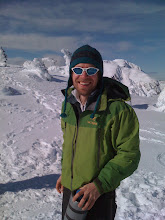Global warming is changing ice conditions off Alaska’s coast so much that elders and hunters can’t rely on their expertise to keep them safe, Northwest Arctic Borough Mayor Siikauraq Martha Whiting told a statewide commission Thursday.
“It’s almost like some of the traditional knowledge is null and void,” she said.






